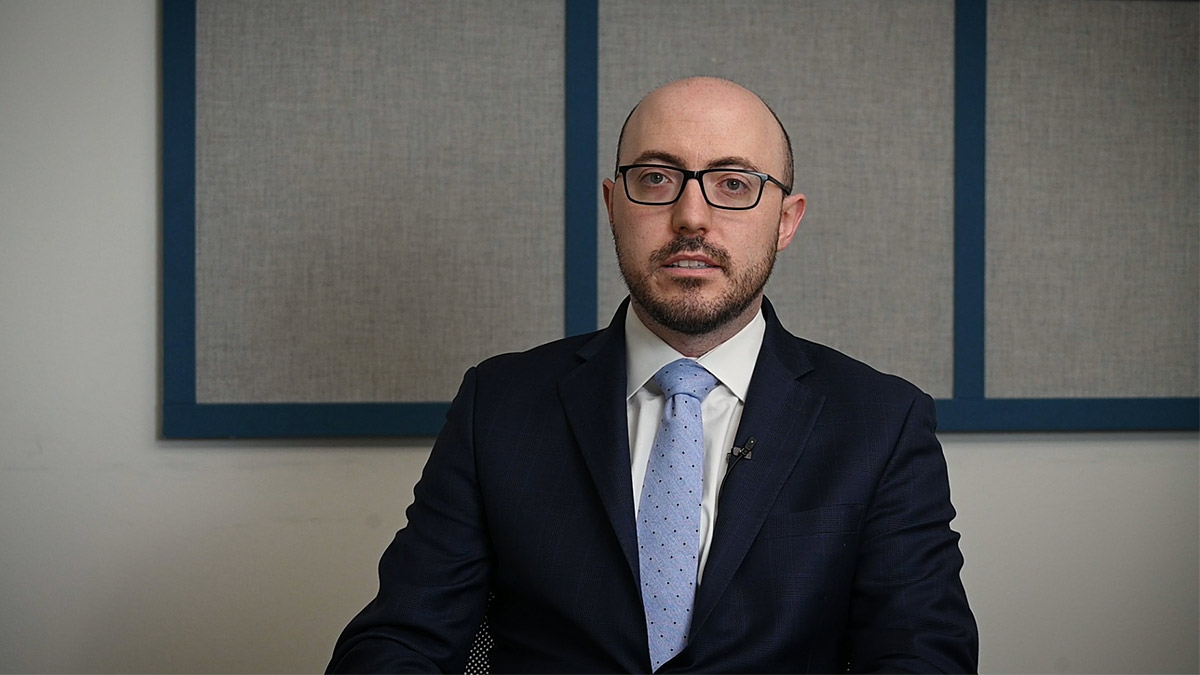How You Can Get Heart Healthy In 2021
January 4, 2021

It’s 2021! Time for New Year’s resolutions - or making changes (you can keep) to be healthier in the New Year. Preventive cardiologist Dr. Luke Laffin talks about heart healthy goals for 2021 – as well as tips to get there during the challenges of COVID.
Subscribe: Apple Podcasts | Buzzsprout | Spotify
How You Can Get Heart Healthy In 2021
Podcast Transcript
Announcer:Welcome to Love Your Heart, brought to you by Cleveland Clinic's Sydell and Arnold Miller Family, Heart, Vascular & Thoracic Institute. These podcasts will help you learn more about your heart, thoracic, and vascular systems; ways to stay healthy; and information about diseases and treatment options. Enjoy!
Dr. Luke Laffin:
Hi there. My name's Luke Laffin, and I'm a preventive cardiologist at the Cleveland Clinic. I'm here today to talk to you a little bit about how to keep our heart healthy in 2021.
Dr. Luke Laffin:
Really? 2020? What a year. Really a different opportunity or a different situation for all of us that we've had to adapt to, masks, not going outside as much, social distancing. It's really been difficult for a lot of people. Hopefully with the calendar year turning over, we can talk about some heart healthy habits that we can take forward into 2021 and really make it a great year from a physical and mental health perspective. Some things that my patients have really found to be helpful in the midst of a pandemic, and even outside of a pandemic, are trying to stay as active as possible. Okay? The one encouraging thing is that treadmills are sold out all over the internet, so it may not be the best time to buy one of those, but trying to find a way to stay physically active.
Dr. Luke Laffin:
And what we really want to try and do in the new year is get at least 150 minutes of moderate intensity physical activity a week, and moderate intensity means brisk walk, light jog. That's a minimum. Definitely, more is better. But really, that's what we should be striving for trying to achieve as good a heart health as possible. And that's just aerobic physical activity. Once you've reached that threshold, then really trying to get about two to four times a week of some resistance activities, light weights, light bands. These can be really, really helpful, particularly as we get older, in terms of maintaining our overall muscle mass.
Dr. Luke Laffin:
When we think about other factors going into the new year that we really need to focus on, it's also focusing on a healthy diet. With more takeout options available now than ever, you may tend to stray a little bit from some of those dietary patterns that you were better at in the past. We've passed the time where we're at the holidays. We're having turkeys and hams and all of that. So really trying to focus on limiting portion size, limiting the amount of sodium in one's diet, and trying to moderate any type of alcohol consumption can be really helpful from a cardiovascular perspective to keep you from having strokes, heart attacks, et cetera, and controlling those other risk factors for strokes and heart attacks, such as hypertension, high cholesterol, et cetera.
Dr. Luke Laffin:
It goes without saying that with the new year turning over and the need for New Year's resolutions, that if you're smoking, you should try your very best to stop it. If there's one thing that you can do in the new year to really improve your cardiovascular health, it's cut down and stop smoking, whether it's cigars or cigarettes.
Dr. Luke Laffin:
And then when we think about other factors that we really need to take forward into 2021 to preserve our heart health and have a great year, well, we've got to think about COVID-19 and the pandemic. And I would encourage all cardiovascular patients, okay? If you have risk factors for cardiovascular disease, have known cardiovascular disease, such as history of strokes, heart attacks, talk with your doctor about getting the vaccination. It can be really helpful and important. We know when we look at similar vaccination programs, such as for influenza in cardiovascular patients, they tend to do better and have less cardiovascular disease because any type of infection is a real strain on the cardiovascular system, and we don't want to put that strain on people that already have heart disease.
Dr. Luke Laffin:
Those are some of the major factors to really focus on as we reach January 2021 and hopefully have a great new year. Thanks.
Announcer:
Thank you for listening. We hope you enjoyed the podcast. We welcome your comments and feedback. Please contact us at heart@ccf.org. Like what you heard? Subscribe wherever you get your podcasts, or listen at clevelandclinic.org/loveyourheartpodcast.

Love Your Heart
A Cleveland Clinic podcast to help you learn more about heart and vascular disease and conditions affecting your chest. We explore prevention, diagnostic tests, medical and surgical treatments, new innovations and more.


